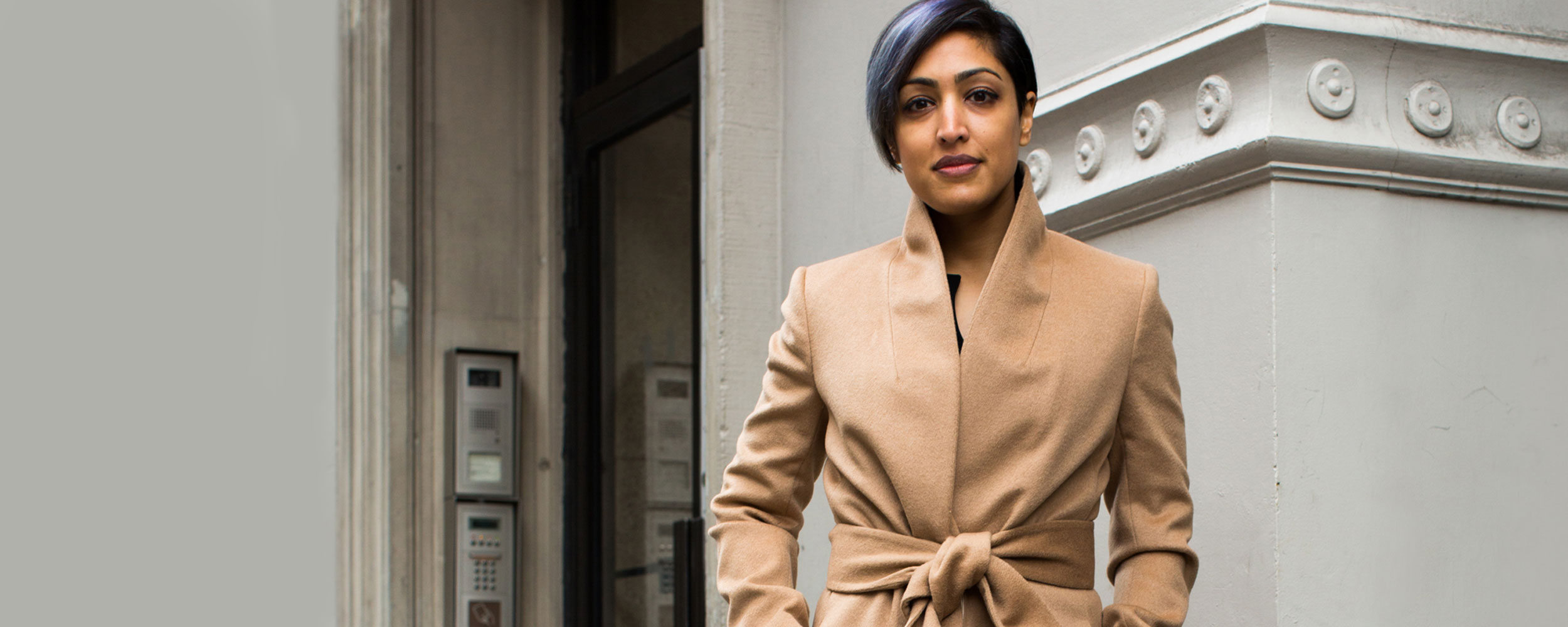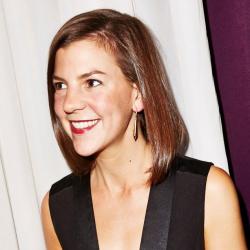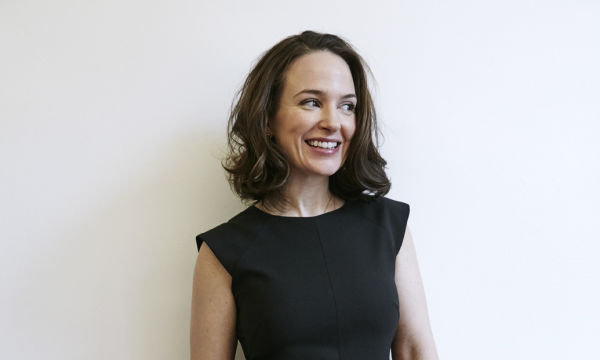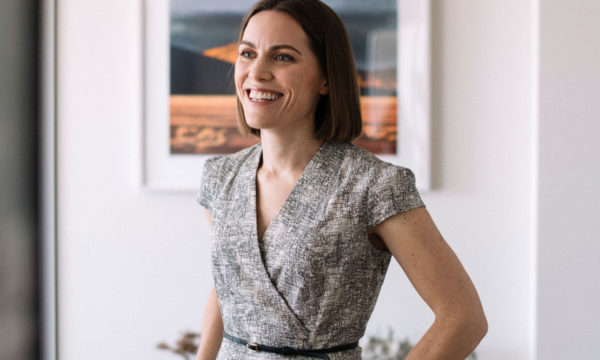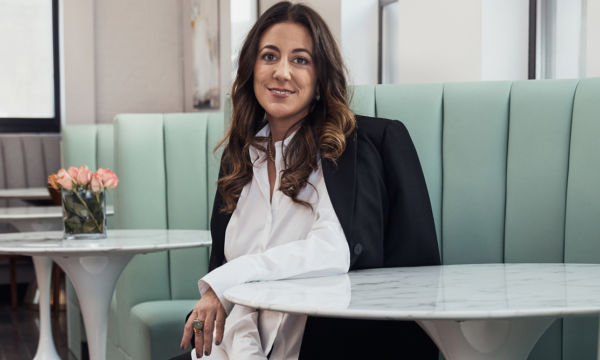California’s Coolest Data Scientist: Rumman Chowdhury
January 13, 2017 | Filed in: Woman of the Week
At 36, Rumman Chowdhury puts other multi-hyphenates to shame. A political scientist with degrees from MIT and Columbia, she began practicing data science before the field even existed, and is about to start a new job that involves artificial intelligence—on top of finishing her Ph.D. (try to keep up). We hung out with her a few weeks ago to talk about tech culture, behavioral patterns, short haircuts, and what would happen if she changed her LinkedIn photo to a man’s.
I’M OF A PARTICULAR GENERATION that grew up watching strong female characters on science fiction TV shows, which influenced a number of girls in high school and college in the ‘90s. It’s called “the Dana Scully effect”—I wanted to be her. She was a strong woman in a male-dominated environment, and she didn’t compromise her femininity in order to be equal with the men she worked with. I strive to be that way.
PEOPLE ALWAYS ASK ME, “How does a political scientist become a data scientist?” And ultimately, I think the two fields are very similar: They both involve the study of behavioral patterns. I’ve always been interested in people and data, and understanding how to connect the two.
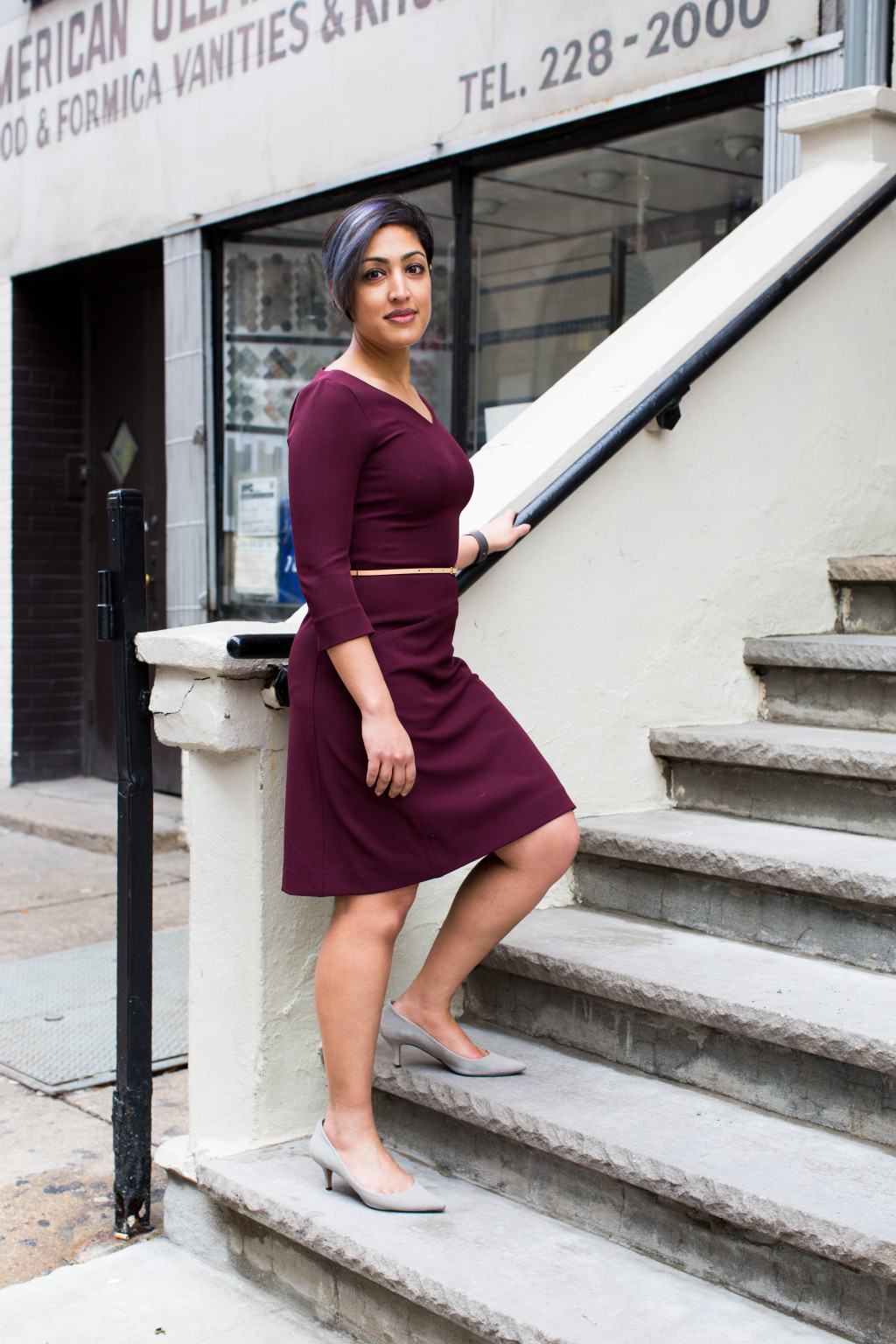
Rumman wears the Alexandra dress in claret.
THE PURPOSE of data science is to use models, data, and algorithms to help businesses understand their customers and improve their offerings. Coming from a political science background—and not an engineering background—taught me to approach data with an eye on humanity and its messiness. Some people think that algorithms don’t leave room for human behavior, but at the end of the day, humans are still the ones making decisions to do things, and we act very irrationally sometimes. It’s important to build that irrationality into every model.
I WENT TO MIT for undergrad, and initially wanted to study biomedical engineering. However, once I got into a lab, I realized that it wasn’t for me—the environment was too solitary. My strengths lie in understanding people, but I still wanted to do it mathematically. Then I took a political science class for one of my humanities requirements, and I realized how quantitative it was—we were writing papers with evidence and actual hard facts. That’s how I found what I wanted to do.
AFTER COLLEGE, I worked in the public policy and nonprofit worlds for a bit, but I got frustrated pretty quickly—I knew we could use models and data more effectively, but nobody was. So I went and got a master’s degree in quantitative methods from Columbia. After that, I worked as an economist, which was at the other end of the spectrum—pure math, very high level. I calculated economic indicators for the U.S., the U.K., and Australia. I went on to do consulting work that was basically data science—I would look through data, make a model, and use it to find concrete solutions that people could use—even though the field of data science didn’t exist yet.
I DECIDED TO GET my Ph.D. in political science at UCSD, which required moving all the way from New York to San Diego. That was really hard. I’d only ever lived on the East Coast, and San Diego is totally different. The environment, the culture, the people—it’s not how I am, and it was a rough adjustment. A big part of getting through it was relying on my network. I kept in touch with my master’s program advisor, and with a lot of people at previous jobs. That’s how I was able to leverage consulting projects while I was studying there, too.
I HAVEN’T FINISHED MY Ph.D. YET, because data science started to take off about two years ago, and I wanted to be part of it. I flew up to San Francisco and dove in, and I’m really glad I got in on the ground floor. I got to have an impact on what data science is, and to shape how we understand and implement it.
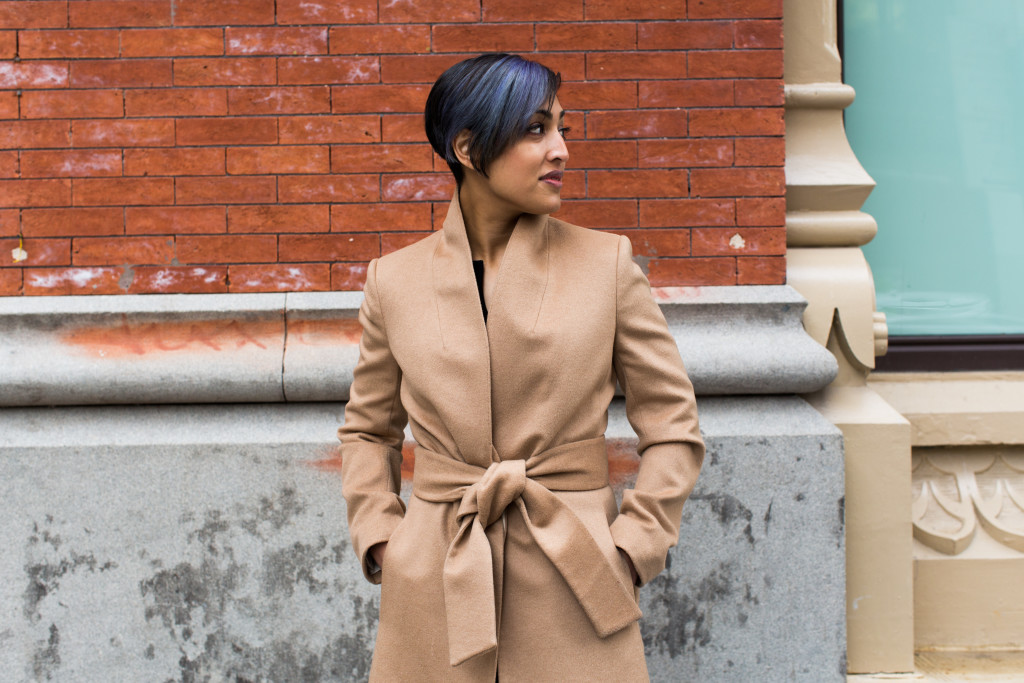
Rumman wears the Abingdon coat.
I CHOOSE MY JOBS in large part based on who my boss will be. I’ve had a job that was amazing on paper but ended up being miserable because I didn’t like the people I worked for. It doesn’t matter how prestigious the job sounds, or how much they pay you—if your boss isn’t working with you, it’s just going to be awful. One of the many things I love about my job at Metis is the community of intelligent, super interesting women I work with. It’s the first job I’ve ever had with a female manager, and the staff is pretty much fifty-fifty—whereas all of my previous bosses have been men, and almost all of my previous co-workers have been men.
THE TECH WORLD IS STILL very male-dominated. In classes I’ve taught, I’ve noticed that some of my male students would get contacted by recruiters for offers I should be getting, while I was getting recruited for entry-level roles. Besides the fact that I was literally their teacher, I couldn’t understand why these students would be tagged for these opportunities instead of me, aside from gender. I’ve thought about making an identical LinkedIn profile with a picture of a guy to see what would happen. Sometimes I wonder if it’s an advantage that my name isn’t obviously gendered. I’ve walked into interviews where people have said, “Oh, we didn’t realize you’re a woman.” And I’m like, “What does that mean?”
I’M ABOUT TO START A NEW JOB as a senior manager in artificial intelligence at Accenture. The role of my group is to help companies incorporate artificial intelligence into what they do. AI sounds like futuristic robot stuff, but there are a lot of pragmatic uses. The goal is to demystify what AI is and how it can be effective on all different levels.
I THINK OF CLOTHING as my armor. When you exude a sense of professionalism, people treat you differently. I’m also 5’3” and look younger than my age, so I actively try to not be mistaken as an admin or an intern. If I show up to work in a hoodie and a T-shirt, I’ll look like a college kid—nobody will take me seriously as a senior data scientist.
MY GO-TO MM PIECE is the Etsuko in crackle, which is what I wear to interviews. It fits well, looks awesome, and makes me feel like I can conquer the world. It also travels really nicely and doesn’t wrinkle. My other favorite is the Lydia. I’m going to wear it to my first day of work at my new job. And I also love the Dietrich jacket. When I first put it on, I was like, “Are you kidding me right now? This is the most boss jacket ever!” It makes you look like you own everything around you.
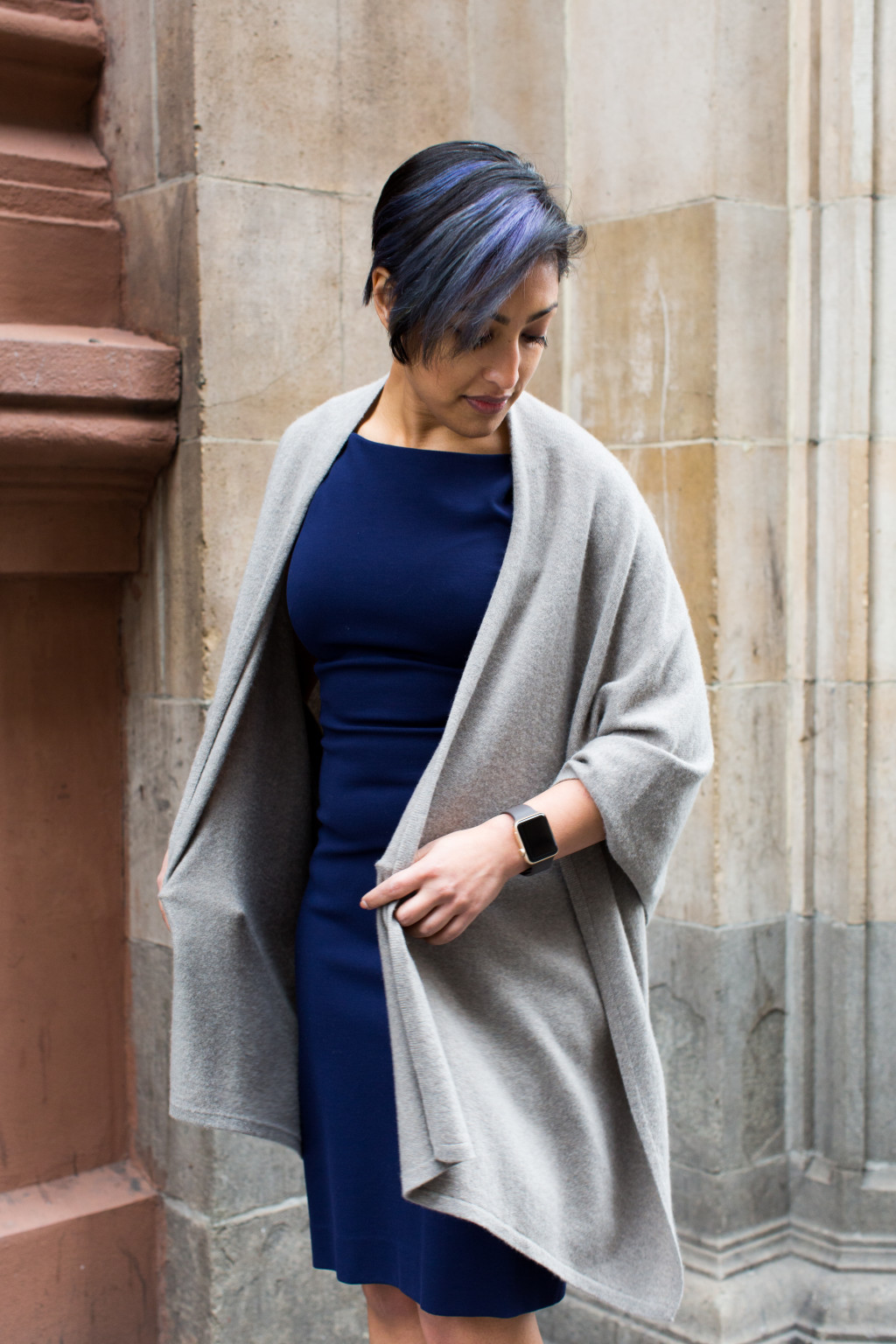
Rumman wears the Lydia dress with the Angelou shawl in taupe.
I USED TO HAVE LONG HAIR, and I’ve also noticed a big difference in how people talk to me since I cut it short. My long hair made me look like a little girl, and now I don’t look so “cute” anymore. There’s been a change in how men talk to me; I think they’re more comfortable now. I look tougher, and maybe it puts them at ease. Also, people give me different compliments about my speaking engagements. Before I cut my hair, they’d say, “That was so informative, that was great.” But now, people use words like ‘“authoritative” or “direct.” Like, “It’s really great to see a woman being so powerful up there.” And I haven’t changed anything about the talks or how I’m delivering them—it’s just my hair. It’s a little bit sad.
SOMETHING I LOVE ABOUT SAN FRANCISCO is that people can express themselves in the workplace a lot more easily than in other places—within certain parameters. This might be the only place where I can have a senior-level role and dye my hair purple.
I’M A BIT OF A WORKOUT JUNKIE, and I also like to learn new things. When I started doing yoga, I got my teacher training certificate because I wanted to have a tangible skill at the end—if you’re going to do something, don’t do it halfway. Lately, I’ve been taking karate lessons from this tiny Argentinian woman who’s a fourth degree black belt. Getting to that level is a huge accomplishment, and very few women do it. When she went to her ceremony, they wouldn’t let her in—she had to show her ID, because they were expecting a guy.
I’M NOT AFRAID TO FAIL at things, and I credit graduate school for teaching me that. In a Ph.D. program, you get used to failing all the time! In Silicon Valley, they say, “fail fast”—do what you’re going to do, and do it quickly; if it works, it works, and if it doesn’t, it doesn’t. You have to get past perfectionism and realize that if you fail—you didn’t get the job, or whatever—you’ll still wake up tomorrow. I also try not to have a myopic view of the things that I can do. I just say yes to things, even if I don’t know what I’m doing. I trust that I’ll figure it out.
Photos by Frances F. Denny.





